Harold Prince Forever Changed Broadway
The legendary producer-director died this week at the age of 91.
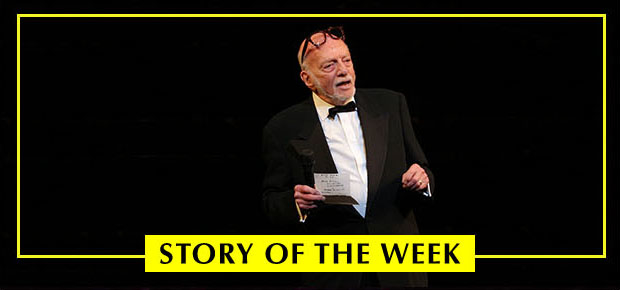
(© David Gordon)
Producer-director Harold Prince died in Reykjavík, Iceland, this week. He was 91, and his remarkable career coincided with the modernization of Broadway. Truly, no single individual has left more of a stamp on the industry than Hal Prince. Story of the Week will reflect on his legacy and how it continues to define the musical theater.
Who was Harold Prince?
Prince was the producer behind game-changing musicals like West Side Story, Fiddler on the Roof, and Cabaret, the last of which he also directed. Over the years, he would increasingly take on the role of director, first as a producer-director, and then exclusively. His directing projects include Sweeney Todd, Evita, and The Phantom of the Opera. Although his career was dotted with flops (most bitterly the Stephen Sondheim musical Merrily We Roll Along), he was rewarded handsomely for his successes, earning 21 Tony Awards (more than any other individual). He also became immensely wealthy: According to the late Shubert Organization chairman Gerald Schoenfeld in his memoir, Mr. Broadway, Prince's contract entitled him to 4 percent of the gross of The Phantom of the Opera, which amounts to over $44,000 for just this last week of Broadway performances. Phantom has been running at the Majestic Theatre since 1988 — the longest run in Broadway history.
Prince learned the theater trade at the knee of George Abbott, the producer-director whose career offers the most direct antecedent to Prince's (Abbott died in 1995 at the age of 107, and like Prince, he worked all the way up to the end). Prince first worked for Abbott as an office assistant, then assistant stage manager, and finally stage manager on the 1953 musical Wonderful Town. It was Abbott who directed Prince's first project as a producer, The Pajama Game, and it was Abbott who made up the difference when Prince (and his partner Robert Griffith) came up short on funds. It proved to be a good investment in a burgeoning career.
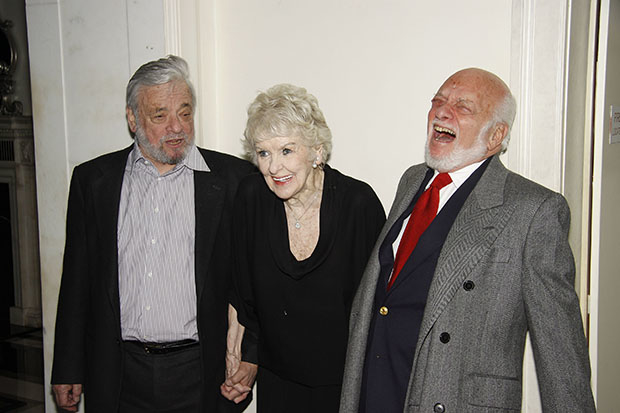
(© Joseph Marzullo/WENN.COM)
Prince would go on to work with some of the most important artists in the theater, including Leonard Bernstein, John Kander, Fred Ebb, Jerry Bock, Sheldon Harnick, Andrew Lloyd Webber, Liza Minnelli, Elaine Stritch, Patti LuPone, and Stephen Sondheim.
How did he change Broadway?
Prince's ground-up trajectory gave him a familiarity with all aspects of the theater, and that allowed him to exert sweeping influence over the business. In my own little corner of the industry, his contribution has completely changed the way critics live and work: In his second volume of collected lyrics, Look, I Made a Hat, Stephen Sondheim recalls reading the "hasty," "inaccurate," and "bland" assessments of critics who had only one hour following the final curtain on opening night to bang out their reviews (this old-fashioned practice still reigns across the pond). Sondheim writes, "Harold Prince changed this self-defeating routine by inviting the reviewers to see the shows he produced [starting with Cabaret] on any of the three nights preceding the opening…that way, he urged them, they would have more time to think about, as well as write about, the show." We still do it that way, and I'm eternally grateful for this humane innovation.
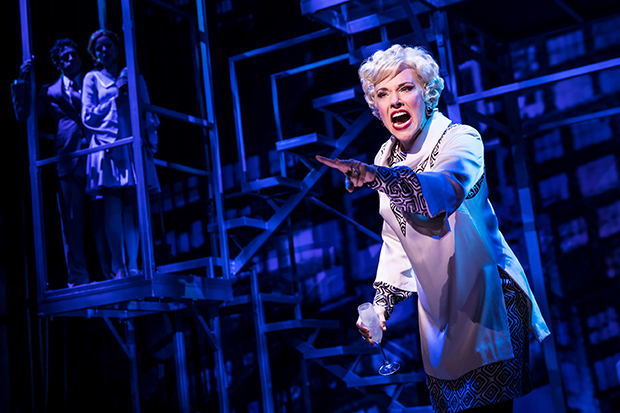
(© Matthew Murphy)
Perhaps Prince knew that his shows required a little more time to digest: In his career, he took on the story of a gay window-dresser languishing in an Argentine prison (Kiss of the Spider Woman), violent anti-Semitism in the old South (Parade), and the opening of Japan to western trade (Pacific Overtures). It shouldn't escape notice that Prince was the director of both Cabaret (the most powerful anti-authoritarian statement ever created for Broadway) and Evita (a musical that romanticizes a glittering fascist). Unlike the musical comedies of an earlier era (inoffensive fare to facilitate digestion and complement a martini buzz), these shows challenged their audiences to think about the wider world, presenting a vast diversity of human experience and expression.
They were also grandiose and entertaining, employing lavish costumes and the latest scenic effects. Prince's critics have rightly pointed out that his more-is-more approach is not one-size-fits-all (both Pacific Overtures and Sweeney Todd have found greater resonance in subsequent scaled-back productions by other directors). Still, Prince's marriage of spectacle and seriousness encapsulates the best of what Broadway can be. It was absolutely essential to keeping audiences engaged in the 1970s and '80s, when Times Square became a seedy place that middle-class ticket-buyers avoided. They came back in droves to see the falling chandelier in Phantom and the 68-person cast in the 1994 revival of Show Boat.
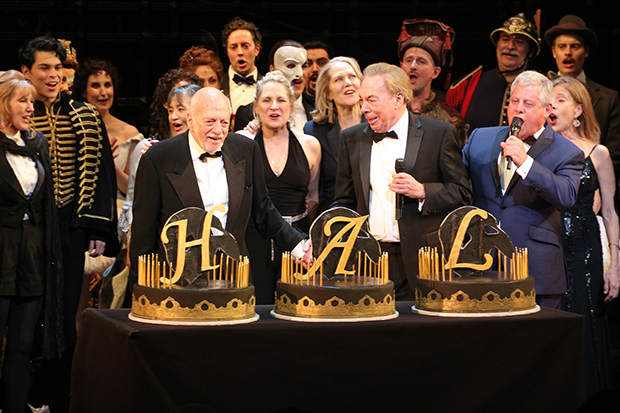
(© David Gordon)
How will he be remembered?
Perhaps as a way of paying forward George Abbott's generosity, Prince made a point of giving breaks to new talent and working with young collaborators. Scenic designer Beowulf Boritt recalls visiting Prince's office when he first came to New York and noticing an elephant figurine on his desk that he speculates was the inspiration for the Hannibal elephant in The Phantom of the Opera. Boritt would go on to work with Prince on both Lovemusik and Prince of Broadway, and to this day he still tries to incorporate an elephant drawing or figurine into each of his sets as an homage (Be More Chill has three).
Everyone in this business seems to have a Hal Prince story, and his memory will certainly live on in theater war stories told over drinks in midtown watering holes. But more than that, his influence will continue to be felt on the Broadway stage in the musical ethos he developed, mixing intellect with showmanship in a manner that appeals to a broad swathe of viewers. It's hard not to see Prince's influence in the maximalist spectacle of the recently opened Moulin Rouge! The Musical. Design-savvy directors like Alex Timbers (Moulin Rouge!) and Rachel Chavkin (Tony winner for Hadestown) are every year adding to a tradition that Prince helped to define.
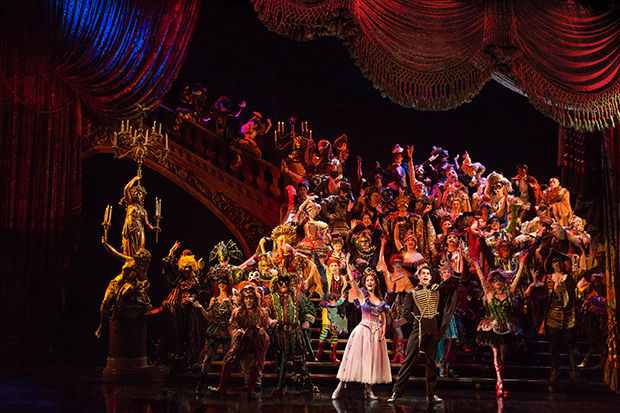
(© Matthew Murphy)
Given Prince's instrumental role in the evolution and survival of Broadway, there are already calls to rename a theater in his honor: The most likely candidate is the Majestic Theatre, home of Prince's most successful show, The Phantom of the Opera. As the only still-running Broadway show to feature his direction, Phantom is the most vital monument to Prince's talent: extravagant, iconic, occasionally ridiculous, yet totally unforgettable.











